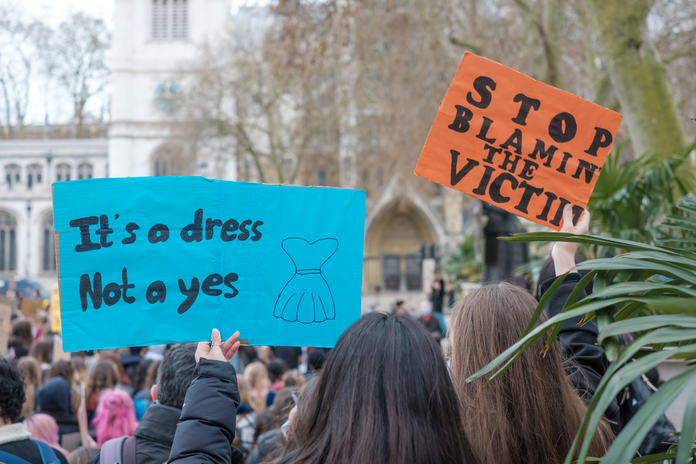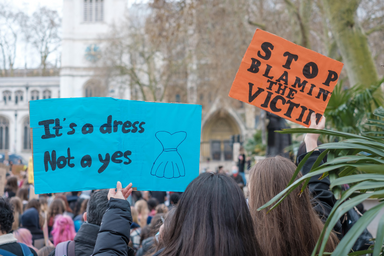I have talked a lot about sexual assault and gendered violence in my articles. However, recently I have been considering a specific aspect of rape culture and its damaging effects on victims of sexual assault. The term “rape apologist” — derived from “rape apology” — refers to an individual who defends (or turns a blind eye to) rapists with full knowledge of the crimes they have committed, and/or blame the victim for the assault. There is little online about the origins of this term, but it seems to have become more prevalent in recent years in light of the “Me Too” movement and larger discussions about rape culture.
The way we behave as individuals directly influences abuse rates and impunity:
Recently, the film Promising Young Woman (2020), written and directed by Emerald Fennell, addressed the impacts of rape apology on a victim’s ability to seek justice for the crimes committed against them, and how it enables rapists to continue their abuse. Cassie Thomas, played by Carey Mulligan, struggles with the aftermath of the rape of her best friend, Nina, that took place while they attended medical school years prior. The film is a masterful investigation into the impact of rape and rape apology on the lives of women. I was especially interested in how the film depicts larger institutions, such as universities, as enablers of sexual abuse through impunity.
The consequences of sexual assault are plentiful. It is one of the leading causes of Post-Traumatic Stress Disorder (PTSD), Anxiety and Major Depression Disorder, and Eating Disorders. A crime with such severe short-term and long-term repercussions should be treated as such by the justice system and society at large. And yet, rape is one of the most under-reported crimes, and only about 0.7 percent of rapes and attempted rapes result in a felony conviction for the perpetrator. When one observes public reaction to sexual assault, these statistics become unsurprising. The backlash directed at women who attempt to denounce their abusers is relentless, with victim-blaming and denial being prominent reactions that can cause further mental distress to victims. lmpunity is yet another frustrating and traumatising result of most reported sexual assault cases in universities and courts alike. A famous example of this is Brock Turner, who for legal reasons I have been advised to not refer to as a rapist. Turner was charged with three counts of sexual assault. Facing up to 14 years in prison, he was infamously given a 6-month sentence, of which he served half.
Speaking to rape apology and gender, men who enable other men in their abuse are the most damaging. They allow male abusers to feel justified in their sexual exploitation of women, protected by the only gender they respect (because you cannot convince me that men who abuse women are anything but dismissive to the social condition of any of the women in their lives).
I learned this all too quickly. When I was assaulted during my high school graduation trip, I was afraid to speak out against my abuser. He was well-liked and conventionally popular. When I eventually confided in close friends, I was met with mixed reactions, ranging from passive support to complete dismissiveness. When he sexually assaulted his classmate in college, everyone commented on the incident, but still, he faced no consequence among our social circles back home. These reactions discouraged me from seeking reparations for the damage that was done to me, and was, and still is, almost as harmful to my mental health as the abuse itself. Having to see my abuser at social functions, being embraced by people I considered my friends, knowing full well he has received little to no backlash for the abuse he inflicted on me is humiliating and stressful.
I can only hope that the people who exhibit this passive behaviour in the face of abuse, or who actively deny and belittle my experience, can educate themselves on the damaging consequences of their behaviour. Abusers rely on and feel encouraged by the protection they receive from friends, colleagues, and institutions who aid and abet them by refusing to acknowledge their abuse. In excusing abuse and abusers, you are inflicting more trauma on the victim, and ensuring that the abuser will carry on engaging in similar forms of physical and sexual assault. We cannot end impunity, much less sexual abuse, unless we as individuals in a society cease to engage in behaviours that protect abusers and shame victims. If you are silent in the face of abuse, you are complicit. Those who do nothing in their power to condemn rapists ensure that they will rape again.


